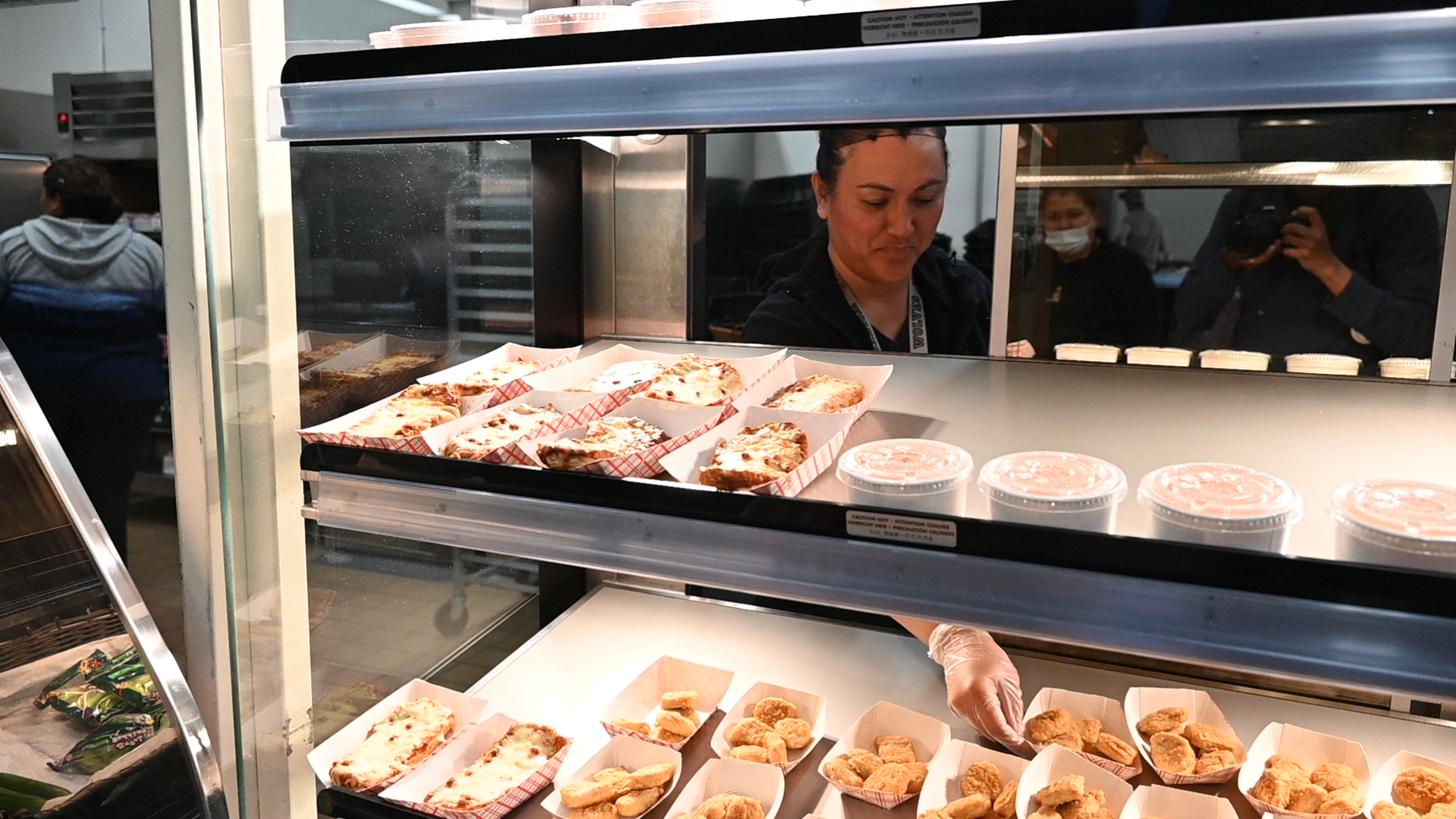It’s 10:37 a.m. and the bell has just rung, signaling the end of the second period. Students pack their belongings as quickly as possible before rushing to the cafeteria line to satisfy their stomachs.
From coffee cakes to french toast and cinnamon swirls, the cafeteria offers a diverse menu to cater to every palate. For many students, these meals set the tone for the day that lies ahead, providing them with the essential energy they need to prosper in their classes.
Serving breakfast, lunch and supper on a day-to-day basis, the cafeteria staff seamlessly serve entrees to over 850 students.
Approximately one in five children live in households where they experience inadequate access to nutritious foods as stated by the School Nutrition Association.
Researchers from No Kids Hungry discovered that students who eat breakfast achieve 17.5% higher test scores in mathematics, attend school 1.5 times more, are 20% more likely to graduate high school and become less likely to experience hunger as adults in contrast to students that don’t.
Behind the bustling lines and tantalizing aromas lie stories of hard work, dedication and a commitment to fueling the minds of tomorrow.
At the heart of this culinary operation is the new cafeteria manager, Glenda Maldonado, whose leadership sets the tone for the entire team of cooks, servers and kitchen assistants who begin their day well before the first bell rings.
Beginning her day at 7:30 in the morning, Maldonado ensures that the kitchen is clean and refrigerators are at the right temperature before checking her emails and preparing meals.
With dietary restrictions and preferences in mind, she and her team ensure that there is something for everyone, including vegan and gluten-free options.
Preparing ingredients according to the menu, the cafeteria staff wash fruits and vegetables, chop vegetables for side dishes and arrange food items into their designated locations.
Replenishing food items as needed to maintain availability and freshness, a staff member stands at each food station and ensures each student receives the required food items in accordance with the nutritional guidelines mandated by the LAUSD Board of Education.
From managing inventory to ordering supplies and adhering to strict health and safety guidelines, her job is a delicate balancing act that requires precision and attention to detail.
Observing and listening to how students react to food options offered for the day, Maldonado uses their reactions as feedback to decide what items students favor and which ones they don’t, in an attempt to maximize her at-times limited budget.
“Recently, they had us adding pickles to the sandwiches and I noticed that we were having more leftovers,” she said. “My job is to make sure that there’s the least amount of food waste because we don’t want to throw anything in the trash.”
With strict guidelines to follow, Maldonado reports to her supervisor who manages 30 schools, expressing that at times it can be frustrating when she has to report an increase in food waste.
“We work so hard sometimes and when the food goes to waste, we feel like we did all this work, all this preparation and we’re running around only to have to throw it away,” she said. “But when we serve all the students and hear positive feedback, we feel like we’re doing something good.”
Despite this challenge, she and her team enjoy their jobs, fulfilling every task with kindness.
Mercedes Arevalo, a cafeteria member with 32 years of experience, shares the feeling of friendship she has with members of the team.
“I love my coworkers,” she said with a smile. “They make me laugh every day.”
In March of last year, Service Employees International Union Local 99 (SEIU Local 99) went on a three-day strike with support from United Teachers L.A. (UTLA), demanding better work conditions and higher salaries.
Shortly after the strike, they reached a tentative agreement with LAUSD on attaining a 30 percent salary increase and improved work conditions.
Their efforts paid off, resulting in a salary increase from $25,000 to $33,000 and improved benefits including fully paid healthcare and paid time off.
For Andres Pascuaz, who has worked at the school for 18 years, these benefits are more than just perks──they’re a lifeline for his family.
“It used to be my part-time job but I chose to go full-time because it has good benefits,” Pascuaz said. “This is my job and I love this as my job.”
According to Indeed.com, the average hourly wage for a food service worker in LAUSD is $22.56 per hour or $52,491 annually, a salary that is 131% greater than the national average for a food service worker.
After achieving the deal with LAUSD, SEIU Local 99 continues to advocate for workers in surrounding communities to achieve better working conditions and higher wages.
In a world where their contributions oftentimes go unnoticed, the impact of the cafeteria staff reverberates throughout the entire school community.
Their tireless dedication and unwavering commitment to excellence make them the unsung heroes of the school, ensuring that every student has access to nutritious meals and a welcoming environment in which they can flourish.




